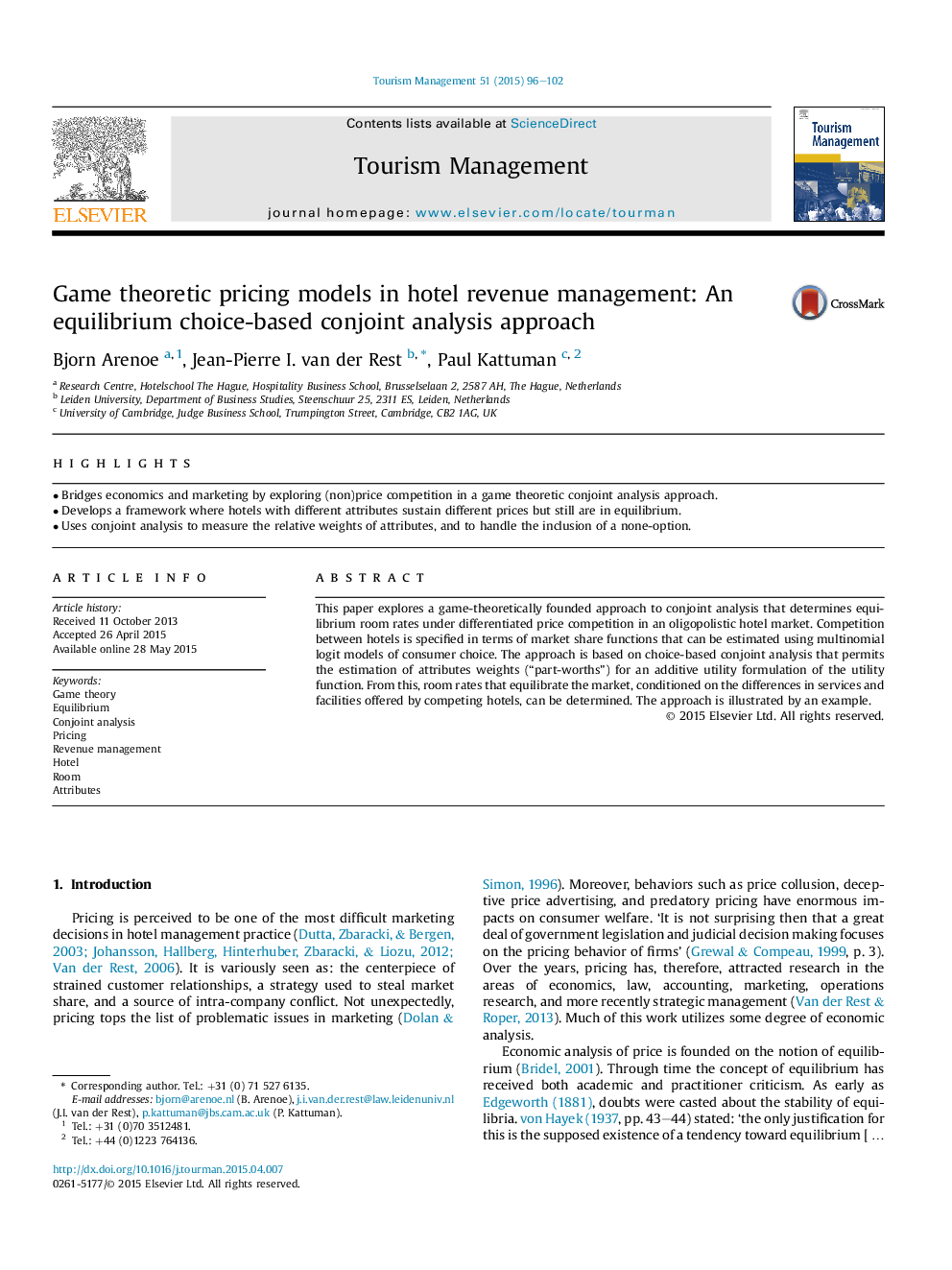| Article ID | Journal | Published Year | Pages | File Type |
|---|---|---|---|---|
| 1011876 | Tourism Management | 2015 | 7 Pages |
•Bridges economics and marketing by exploring (non)price competition in a game theoretic conjoint analysis approach.•Develops a framework where hotels with different attributes sustain different prices but still are in equilibrium.•Uses conjoint analysis to measure the relative weights of attributes, and to handle the inclusion of a none-option.
This paper explores a game-theoretically founded approach to conjoint analysis that determines equilibrium room rates under differentiated price competition in an oligopolistic hotel market. Competition between hotels is specified in terms of market share functions that can be estimated using multinomial logit models of consumer choice. The approach is based on choice-based conjoint analysis that permits the estimation of attributes weights (“part-worths”) for an additive utility formulation of the utility function. From this, room rates that equilibrate the market, conditioned on the differences in services and facilities offered by competing hotels, can be determined. The approach is illustrated by an example.
